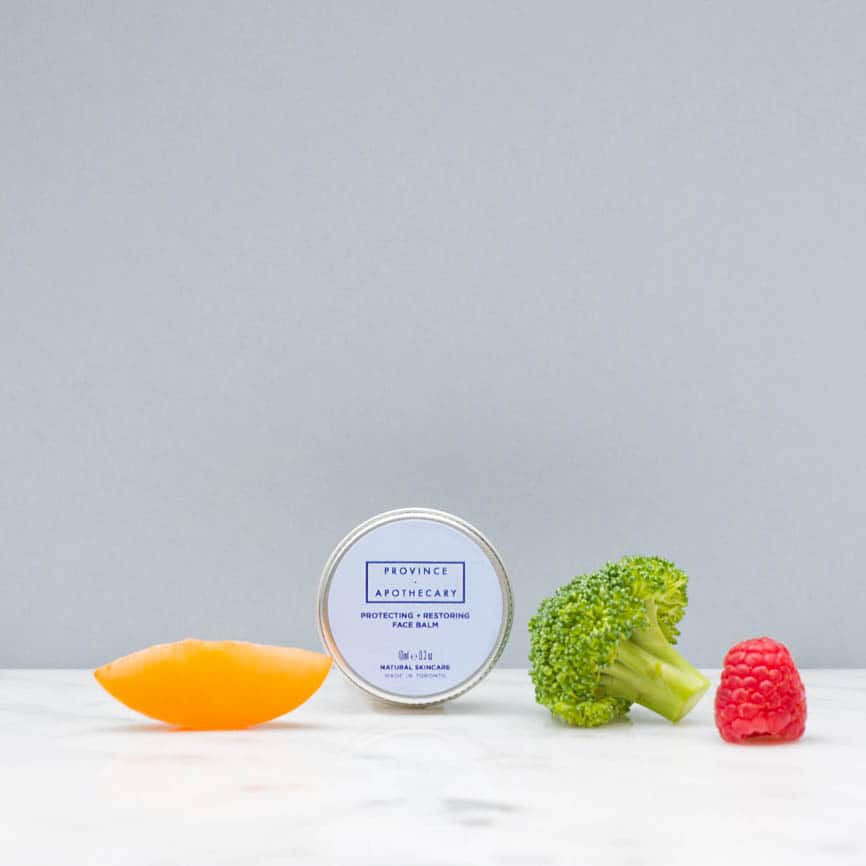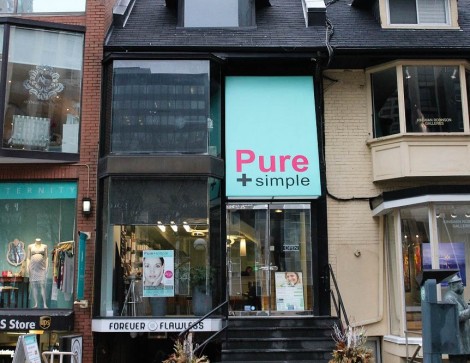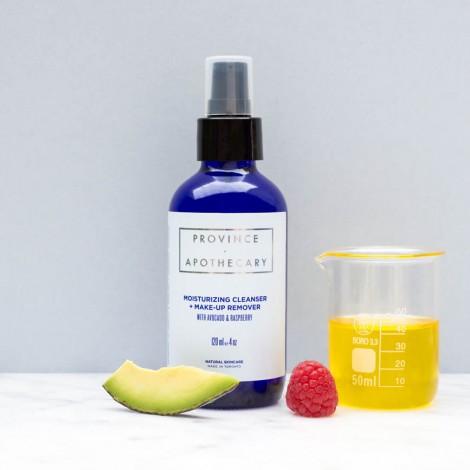As an environmentally conscious business, Your Feel Good Soap Company is far from what you’d expect. For one thing, the camouflage shades that stereotypically characterize green products are nowhere to be found.
Instead, the store is brightly painted, with ornate, cheerful signs hung on the walls. The products themselves have a personality of their own, sporting names like “Open Sesame,” “El Optimista,” and “There’s Something About Rosemary.”
Co-founder Karina Fuentes is taking advantage of ingredients that literally grow on trees. Using natural oils, Fuentes handcrafts products based on her own recipes and her clients’ needs.
“Basically what I make here is stuff that you can make yourself,” Fuentes explains. She compares her work to baking. “ …You can bake at home… but then you still go to a bakery to get your goodies.”
Fuentes adds, “ …if you were to eat any of our products… you wouldn’t get sick.” She laughs. “ …It couldn’t be more ‘homemade.’”
The homemade, eco-friendly philosophy that You Feel Good Soap Company embodies is part of a growing trend in the Toronto cosmetics industry.
The simpler, the better
In another corner of the city, a company called Pure + Simple operates on similar principles.
“We believe that beauty is holistic and based on mind, body, and emotional health,” says Jean Eng, company president. “ …Our main goal is to help our clients achieve the beautiful skin they want naturally.”
With an innate understanding of products and treatments, as well as a strong entrepreneurial skillset — she is a Rotman Marketing alumna — Eng founded Pure + Simple along with her daughter, Kristen Ma. In founding the company, the pair sought a natural way to solve their chronic skin challenges.
In fact, sensitive skin is a problem that catalyzes the founding of many green cosmetics businesses.
Julie Clark — aromatherapist, holistic aesthetician, and owner of Province Apothecary —has always had trouble finding products that won’t irritate her skin. This encouraged her to start experimenting with beauty recipes in her own kitchen.
“Your skin absorbs whatever you put on it, so I believe you shouldn’t put anything on your body that you can’t eat,” Clark says. “[Natural] ingredients are better for the environment, and for everyone’s health.”
Eng mentions that many ingredients used in conventional beauty products effect consumers’ long-term health. For example, parabens, phthalate, and PEG compounds, all of which are common ingredients in cosmetics, are known carcinogens.
Gaelyne Leslie, founder of Crawford Street Skin Care, has had her fair share of unpleasant skin experiences. When she turned 40, she broke out in a horrible allergic reaction to a moisturizer, which resulted in her wearing a hat with a veil to her own birthday party.
After seeing a dermatologist, Leslie discovered that there about ten harmful preservatives in the moisturizer that had triggered her allergy. Leslie then decided it was time to take matters into her own hands.
“This was around the same time that the whole food movement was going local — farm to table,” Leslie explains. “ …I was really interested in cooking so I thought, ‘How hard can it be to create your own cosmetics using natural ingredients that have been around for hundreds of years?’”
A recipe for success
In contrast to chemicals and preservatives, natural products are great for all skin types. Leslie crafts her products with great care, using all natural, locally sourced, and certified fair-trade ingredients — all of which have beneficial properties.
“It’s important [to] us that each ingredient has a role to play in the end product,” Leslie emphasizes. “We don’t believe in throwing in a bunch of ingredients just to make a product sound complex.”
Leslie also stresses the importance of all-natural ingredients. “The skin is our biggest organ, I can’t emphasize that enough,” she explains. “Whatever you put on your skin is absorbed into your body, and if you are doing that every day, maybe twice a day, that’s a significant body load.”
When it comes to her own company, Fuentes has a similar vision. As she walks me from shelf to shelf, she explains how Your Feel Good Soap Store operates. The majority of her products are made from vegetable oils and water, with herbs and essential oils added to give them their unique touch.
“We want to keep it simple and just take advantage of all the benefits that you already find in [natural] oils,” Fuentes explains.
Customers of Your Feel Good Soap Store have two options: they can either buy one of Fuentes’s creations, or design their own recipe according to their skincare needs. By adding different essential oils to the all-natural bases that Fuentes provides, individuals can find the blend that works for them.
Fuentes has also used essential oils to target specific skin conditions. For acne, she recommends eucalyptus and frankincense. For psoriasis she recommends a soothing blend of patchouli and lavender, a combination preferred by one of her satisfied clients.
Fuentes even has a solution for students who have trouble concentrating on their studies: in the past, she has crafted a hand cream with rosemary, known for enhancing focus.
By rejecting synthetic and sometimes harmful additives, green cosmetics companies are developing innovative ways to help individuals embrace their natural beauty.
“Beauty is not standard; it is as unique as our clients,” Eng emphasizes. “Our goal is to help our clients love who they are by helping them love who they see in the mirror.”
This mantra has also inspired Pure + Simple to expand their focus beyond selling products: they also examine their clients’ health, which could reveal the underlying causes of their skin issues.
Cleaner living
Undoubtedly, natural cosmetics carry a significant appeal for individual consumers. The same companies are also paving the way for environmental progress.
For instance, all four businesses refuse to test their products on animals. This sets them apart from many large beauty corporations, who continue to hold objectionable track records in this area.
“ …We don’t test our products on anyone but ourselves — [and a] few guinea pigs called family and friends,” Leslie says.
Fuentes also mentions that she has revised traditional soap recipes — originally made with animal fat — in order to ensure that her products are cruelty-free and vegan-approved.
But even if products aren’t directly tested on animals, they may contain toxic components that harm wildlife or damage ecosystems.
“ …[T]here’s a lot of debate around synthetic ingredients that are commonly used,” Clark explains. “[Microbeads], for example, that exist in a lot of exfoliators, are now showing harmful effects on our lakes and fish.”
In fact, the environmental impact of synthetic beauty products still remains relatively unknown to the general public. Leslie attributes this to weak disclosure laws in Canada, explaining that consumers are not warned of many risks associated with cosmetics ingredients.
However, the fact that green cosmetics businesses are growing in popularity signifies the growth of Toronto’s environmental movement. The city has taken steps towards a smaller environmental footprint by pushing programs like Live Green, an initiative that encourages businesses to provide their clients with eco-friendly solutions.
Businesses themselves have also developed unique ways of encouraging eco-consciousness. 100 per cent of the proceeds from Pure + Simple’s tea tree deodorant are donated to the David Suzuki Foundation. Your Feel Good Soap Company and Pure + Simple have also introduced a bottle-return program, providing an incentive for consumers to reduce waste.
“We view the environment as an extension of ourselves,” Eng emphasizes. “ …By using natural [and] cruelty-free cosmetics, you avoid using ingredients that are bad for the environment and [animals].”
“We’re proud to be part of the growing green beauty industry,” Clark says. “I hope that natural ingredients will become the standard for the industry, and that green beauty brands will dominate the market.”




